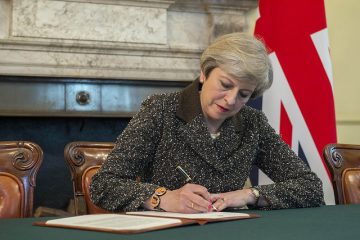
Why a larger Conservative majority in Westminster may lead to a weaker bargaining position in Brussels
It is predicted that Prime Minister Theresa May’s Conservative Party will achieve a significant victory in the upcoming general election on June 8. If the predictions are correct — though at the time of writing Labour is advancing in the polls — May will find herself in a more comfortable position domestically, governing with a larger majority. On the international stage, however, will this increase in domestic power lead to an advantage for the United Kingdom at the negotiation table in Brussels? The Brussels-based press seems to think so, writing that “victory will allow May to head into EU-UK Brexit negotiations with a strengthened hand at home” and “if the U.K. holds a general election in June, Brussels can only lose.” May …
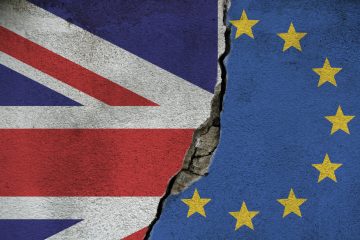
Review of Alt-Finance: How the City of London Bought Democracy by Marlène Benquet and Théo Bourgeron (Pluto Press, 2022)
For years academic literature and broader public debates have largely framed the Brexit referendum as a ‘popular revolt against the elites’. While some emphasised the role of economic factors and others boiled it down to anti-immigration attitudes, most accounts seem to converge around this bottom-up perspective that ordinary people disillusioned with the elites have driven the UK out of the EU. Conversely, apart from a few dissenting voices, the idea that economic elites have been mostly opposed to Brexit has been the prevailing view in the literature. Challenging the over-emphasis on the voting process, Marlène Benquet (University of Paris Dauphine) and Théo Bourgeron (University of Edinburgh) invite us to look more closely at the role played by the economic interests …
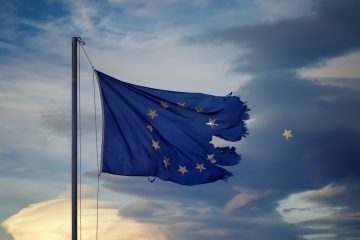
Can Europe Make It? The EU After Brexit
Brexit has weakened populists on the continent? This is wishful thinking. No longer willing to leave the EU, instead populists are determined to take it over. Brexit is a moving target. Each time we think we have a deal, the British House of Commons decides to re-think. It’s like the famous passage from T.S. Eliot: “Time yet for a hundred indecisions/And for a hundred visions and revisions,/ Before taking a toast and tea.” Boris Johnson expected the Parliament to approve the exit deal he reached with the EU. Instead, the Parliament voted for an amendment tabled by a Tory MP, Sir Oliver Letwin. The amendment withholds approval of the deal, until the legislation to enact it is safely passed – …
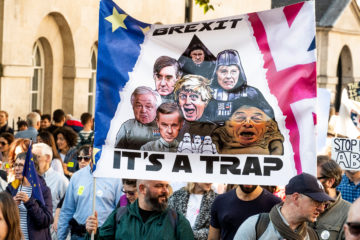
Star Wars and Brexit: The “Rebel Alliance” leaves its mark
It is a period of civil war. Rebel politicians, striking from hidden Westminster offices, have won their first victory against the evil Brexiteer Prime Minister. During the battle, Rebel MPs manage to steal control of the Commons… The so-called “rebel alliance” of pro-EU MPs secured an important victory on September 4 of this year in their quest to prevent a no-deal Brexit: parliament passed the Benn-Burt Bill, which requires Prime Minister Boris Johnson to seek a four-month extension of Article 50 if parliament has not agreed to a no-deal Brexit or a withdrawal agreement by October 19. When the result of the vote was announced, protestors outside of the House of Commons, celebrated by playing the Star Wars theme tune. …
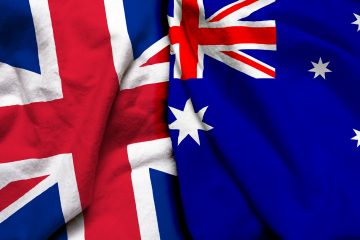
The Australian Case for Closer CANZUK Ties Post Brexit
With the Brexit deadline on the horizon, Britain could enter a new beneficial relationship with Australia and other Anglosphere countries – a development that is slowly gaining traction. On February 11, several prominent UK MP’s called for the prioritisation of a free-movement area – similar to the free movement of persons provision in the European Economic Area – between Australia, Canada, New Zealand and Britain, after the UK eventually exits the EU. Towards a CANZUK Alliance These pronouncements followed the release of the report titled ‘Global Britain: A Twenty-First Century Vision’, co-authored by Conservative MP Bob Seely and the Henry Jackson Society – a bi-partisan British Foreign Policy think-tank. One of the main proposals of the report was to reach out to Australia, New Zealand …
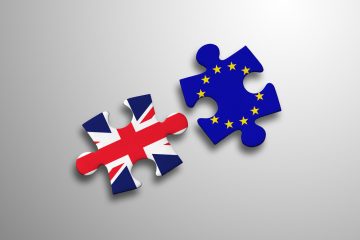
Waking Up Post Brexit: to a Colonizer Dream or a Colonized Reality?
President Donald Trump promised a “very big trade deal” between the US and the UK after Brexit. Prime minister Boris Johnson, however, was less certain, stating that it will not be “plain sailing.” As third prime minister since the Brexit referendum, he is aware that at the moment “the only certainty is uncertainty.” While Mr. Johnson insists that Brexit will take place on 31 October, it remains unclear what will come after Brexit. Brexit optimists paint a picture of unbound potential. Britain freed from the shackles of the EU and Common Market rules and regulations, is able to freely negotiate new trade deals. Embracing the Commonwealth is presented as alternative to remaining in the EU, which is seen as being …
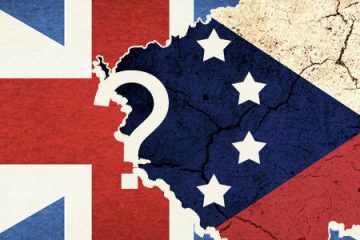
Czech Brexit Policy: Low Level of Politicization and High Degree of Compliance
There are at least four reasons why one might expect Brexit to be a high-profile, politicized issue in Czech politics. First of all, there is increasing evidence that the European Union (EU) crises, of which Brexit is currently probably the most acute one, have led to increased politicization of EU politics in many member states. Secondly, the Czech EU debate is generally politicized and characterized by a predominantly critical tone. Indeed, the country has long been one of the most Eurosceptic EU member states, with a strong tradition of party-based Euroscepticism and a low level of public trust in the EU (according to the latest Eurobarometer survey, it has the third lowest level of public trust in the EU after …

Britain’s Brexit Bargaining: Insights from Game Theory
As we enter a key Brexit endgame week, a few thoughts – informed by game theory – come to mind on the ironies of the British negotiation position and strategy thus far. The basic claim of bargaining theory is that you need a strong ‘reversion point,’ that you can go back to if bargaining fails. Once Article 50 was activated, that was necessarily ‘No Deal’ for the UK. But No Deal is likely self-damaging and certainly divisive. So, it did not and cannot represent a credible reversion point. Without this clear reversion point, one option is to pretend you want something self-damaging – the ‘madman’ approach. For this tactic to work, though, you need to be believed to be ‘mad’ …
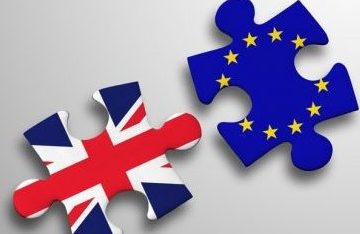
It’s not you, it’s us! What the Brexit divorce tells us about the EU’s own weaknesses
According to social media in Russia, “Brexit” has just assumed a new meaning: you say goodbye, but never leave. Vasilij Petrovich has drunk half a bottle of vodka, broken some precious porcelain, offended the hosts, and despite saying goodbye, he is still sitting at the table and drinking. You feel like pushing him out to the cold, but this would create more problems than keeping him in. This story reflects the current European dilemma. For many years, the United Kingdom enjoyed the benefits of European integration without trying to become a constructive, let alone affectionate, EU member. Two years ago, it decided to leave the EU, but is still pondering whether to leave through the door, window or chimney. The …









